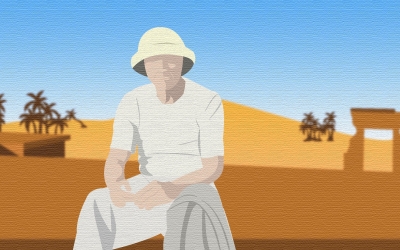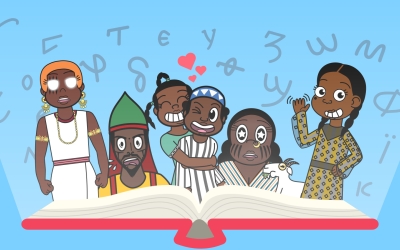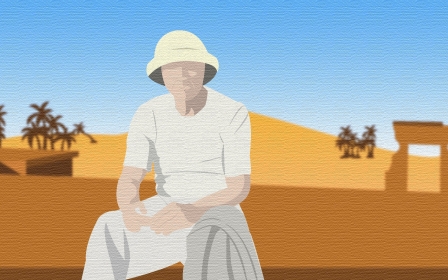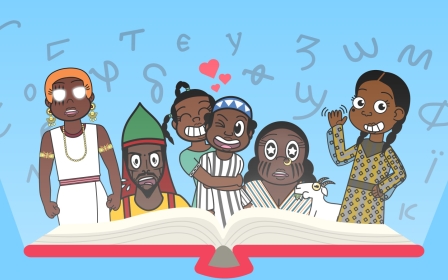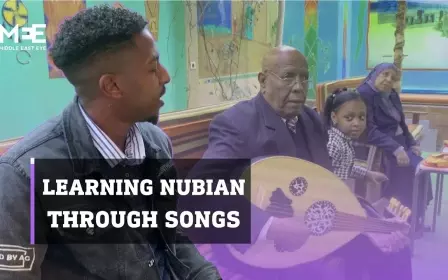Saudi Arabia: Anger in Egypt as court jails Nubians over event marking 1973 war
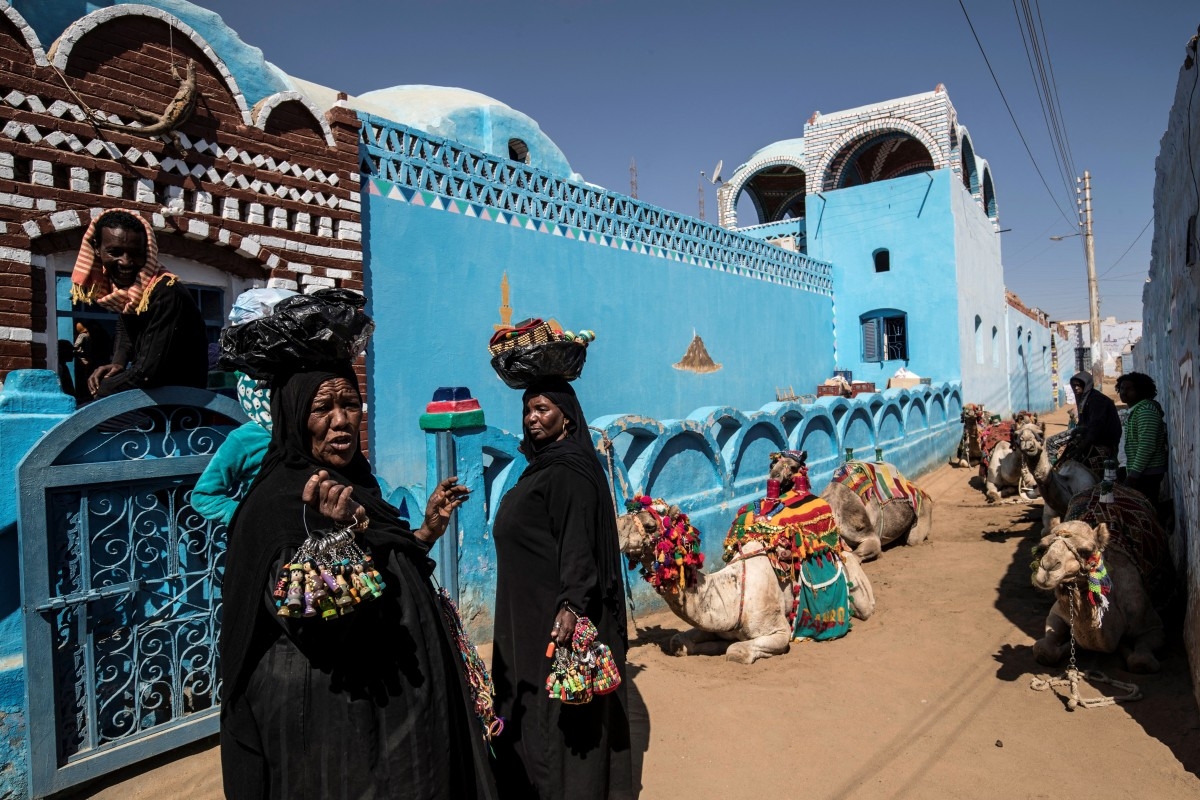
The relatives of 10 Egyptian Nubians, who were handed heavy jail terms by a Saudi court on Monday for organising an event marking the anniversary of the 1973 Arab–Israeli War, have appealed to the Egyptian government to mediate with Saudi authorities to pardon them.
The Riyadh Criminal Court, which tries people accused of having links with terrorist organisations or involvement in actions that threaten public order, handed the Nubians jail sentences ranging between 10 and 18 years.
Prosecutors accused the men of belonging to the Muslim Brotherhood, which is designated as a terrorist group by Saudi Arabia, establishing an association without permission, and posting on social media.
'The verdicts passed against these people are far from fair'
- Amr Faragallah Youssef, son of arrested man in Saudi Arabia
"The verdicts passed against these people are far from fair," Amr Faragallah Youssef, whose father is one of those sentenced, told Middle East Eye.
The men's case dates back to July 2019 when they held a cultural event at the headquarters of a community association in Riyadh to mark the anniversary of the October 1973 victory over Israel, considered a seminal event in Egyptian history.
New MEE newsletter: Jerusalem Dispatch
Sign up to get the latest insights and analysis on Israel-Palestine, alongside Turkey Unpacked and other MEE newsletters
Egypt launched the war to liberate Sinai - a 60,000 square kilometre territory in the northeastern part of the country located near the Suez Canal - from Israel which had occupied it six years earlier.
Egyptians continue to mark the anniversary of the war, considering it a game-changing event in the military balance of the region.
Nubians, who originally hail from an area that covers the southernmost part of Egypt and the northern parts of Sudan, were instrumental in Egypt's victory over Israel in the war and consider it one of their greatest achievements.
It was a Nubian conscript who suggested to the Egyptian army command, and to the late Anwar Sadat, who was then president, the idea of using the Nubian language in communications between different Egyptian units participating in the war.
Fearful of potential Israeli interception of their communications, Sadat strongly welcomed the idea.
The language, now only spoken by elderly Nubians, has become increasingly endangered, especially following the relocation of Nubians from their original home in southern Egypt to other parts of the country for the construction of the High Dam on the Nile River in the early 1960s.
Police raid
After dozens of Nubians gathered at a community association in Riyadh on 25 October 2019 to mark the victory, Saudi police raided the premises and arrested those present, only to release them on 25 December without charge.
The men were, however, placed on a travel ban list pending resumption of the case.
The men were later referred to court, with the first hearing on the case held on 10 November 2021.
Several hearings were held before Monday's session when the court issued the verdicts against the men.
The lawyer of one of the defendants accused Saudi authorities of denying the men the right to communicate properly with their lawyers.
"Egyptian authorities did not know the exact charges levelled against these people either," Ali Ayoub, who represents Ali Gomaa Bahr, told MEE.
Ayoub said that at the 2019 event the defendants had used a banner with a photo of Egypt's late long-time defence minister, Hussein Tantawi, who also hails from Nubia.
"Perhaps if the photo of incumbent [Egyptian] President Abdel Fattah el-Sisi was placed on the banner instead, these people would not have been arrested," said Ayoub.
Compensation row
Nubian associations outside Egypt are incubators of Nubian culture, language and traditions, including culinary traditions which are rich and diverse.
They are places where the Nubians reminisce about the good old days when they lived together as one community that had its own distinct culture and language.
The eviction of the Nubians from southern Egypt for the construction of the High Dam devastated Nubian culture and did away with the Nubian language, the Nubians say.
Following the evictions, the Nubians were dispersed across Egypt, including Cairo and the northern coastal city of Alexandria, where they had little chance to speak their own language or maintain their traditions.
In June 2019, the Egyptian government formed a panel to compensate Nubians forced to leave their homes in southern Egypt.
A month later, however, several Nubian associations and unions outside Egypt issued a statement in which they said the compensation was no substitute for the Nubians' right to return to their lands.
A Nubian activist drew links between this statement and the arrests made at the event in Riyadh in October 2019.
"The Egyptian government might have been angered by the statement," Hani Youssef told MEE.
Highlighting that the statement was signed by Nubian associations in a number of countries, including Qatar, the US and UK, Youssef said the association in Saudi Arabia was the weakest link.
"The authorities of the other countries would have turned down any Egyptian request for cracking down on Nubian associations," he said.
Health issues
Monday's verdicts against the men can be appealed and their relatives in Egypt are trying to contact Egyptian MPs as well as the country's foreign and immigration ministries for help.
Describing the trial as "grossly unfair," earlier this year Amnesty International called on the Saudi authorities to release the men, pointing out that "some of them are older people and suffer from health problems, such as diabetes and cardiovascular issues".
"Most of them have frail health and cannot tolerate incarceration," said Ayoub, adding that all of those sentenced were older than 50.
Amr Faragallah Youssef expressed hope that Egypt's foreign ministry and other state agencies would do something to rescue his father and the other defendants.
"The Egyptian government is our only hope now," Youssef said. "All the people we talk to try to help, but we hope there will be positive results."
Middle East Eye delivers independent and unrivalled coverage and analysis of the Middle East, North Africa and beyond. To learn more about republishing this content and the associated fees, please fill out this form. More about MEE can be found here.


